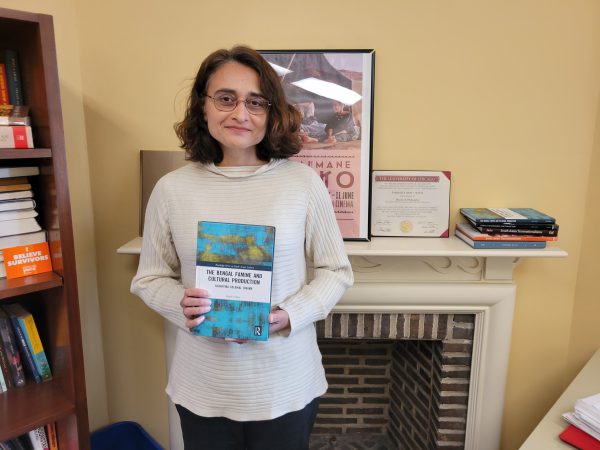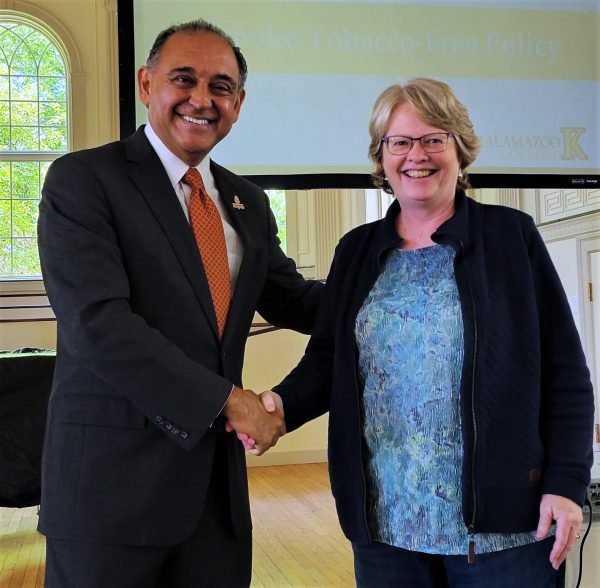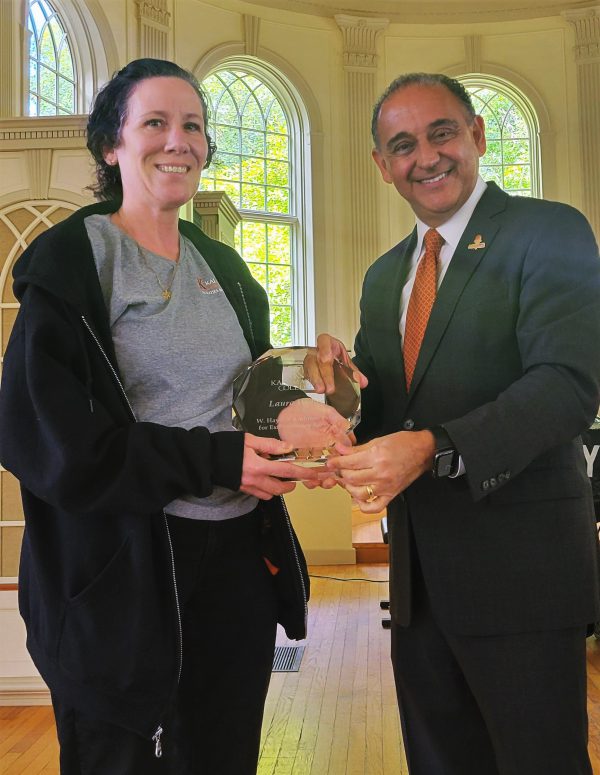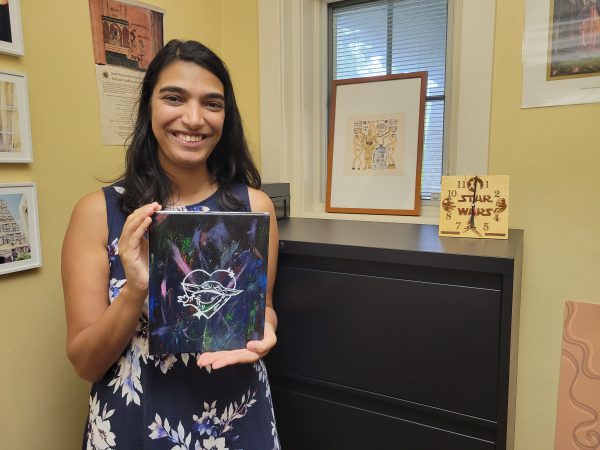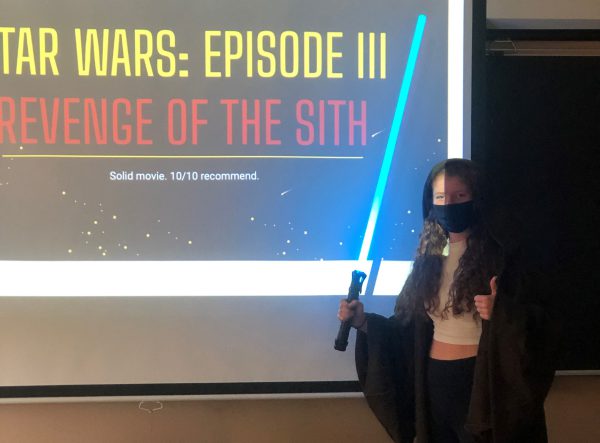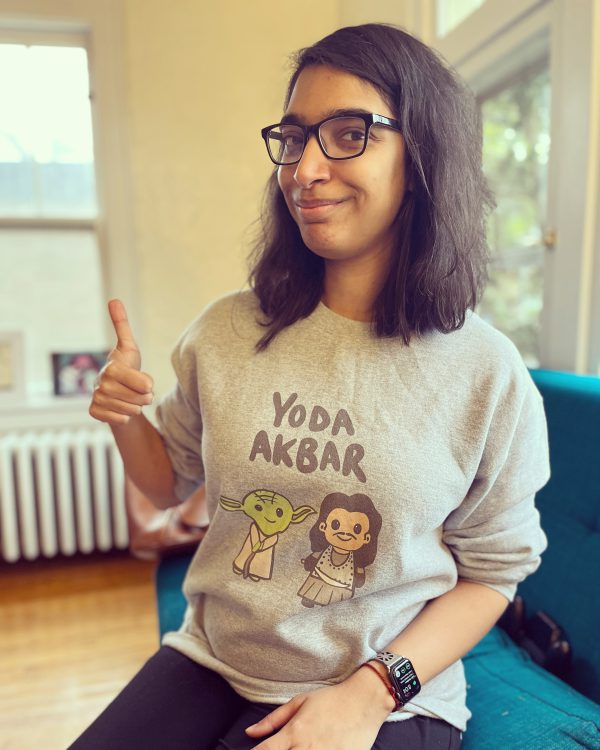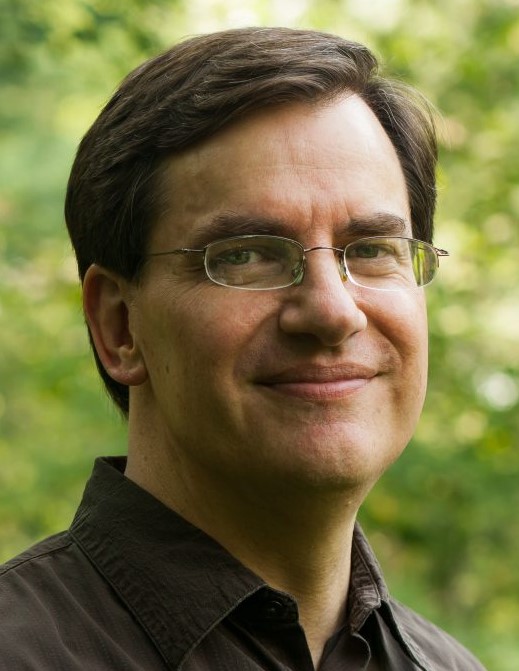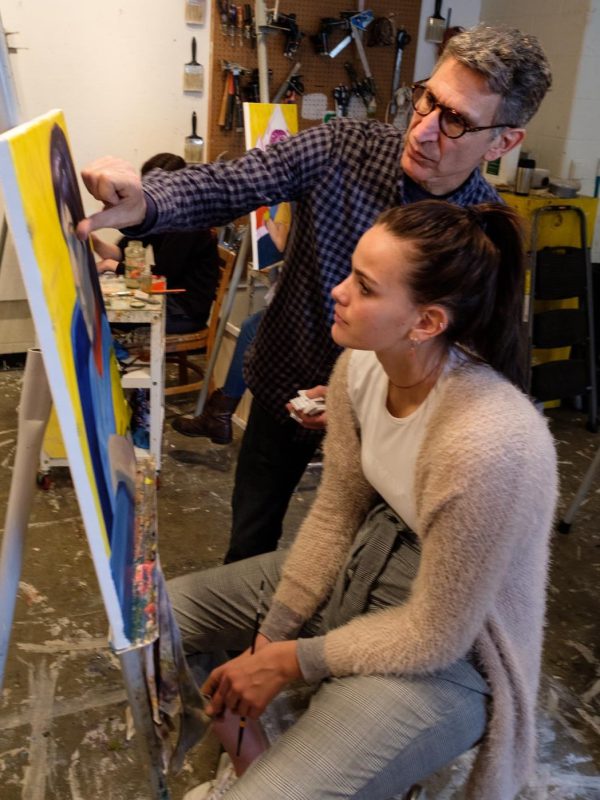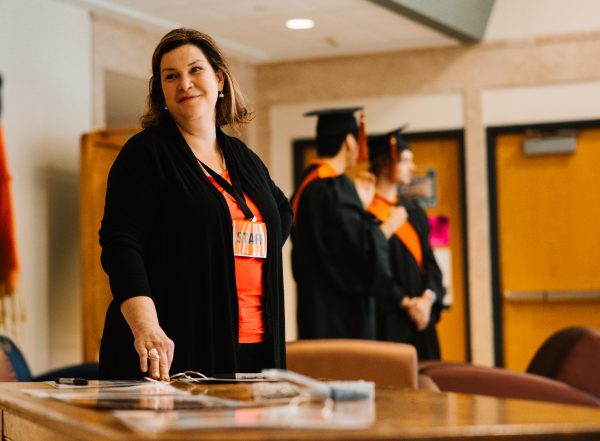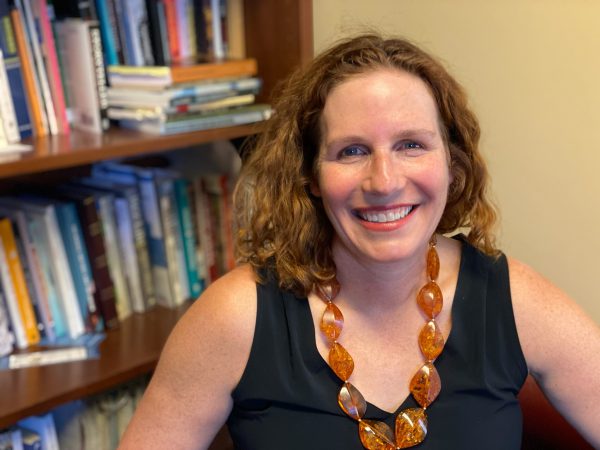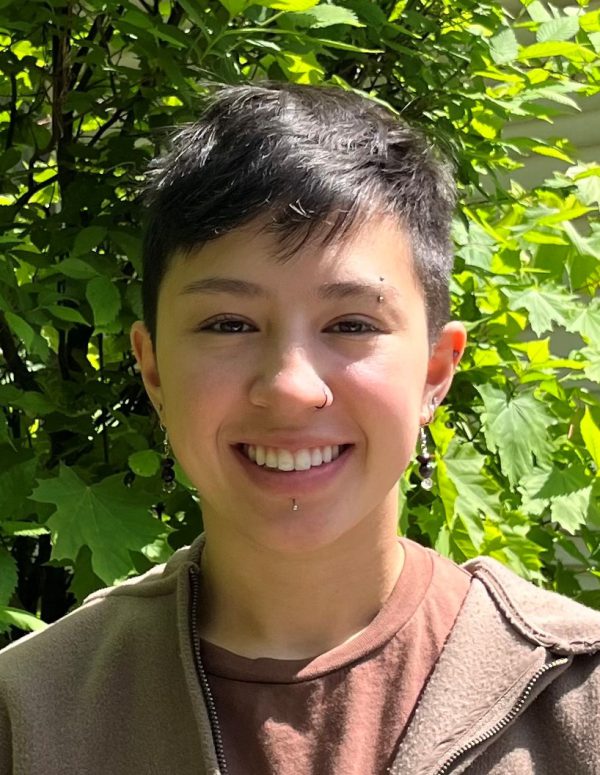Over the past 35 years, the business and economics department at K has grown from one part-time business professor to a popular business major with several full-time faculty.
One constant over that time has been Professor Timothy Moffit ’80. Moffit took on that part-time business professor role in 1989 as a one-year sabbatical replacement, and other than a couple short breaks in the first few years, he has been teaching students at K ever since.
As Moffit approaches retirement this spring, a group of alumni—both classmates and students of Moffit’s—have established a scholarship in his honor. Given to students for the first time in the 2023–24 academic year, the Dr. Timothy Moffit ’80 Endowed Scholarship in Business has already raised $175,000 from a small group of donors. The goal is to increase that total to at least $300,000, which will provide $15,000 to scholarship recipients majoring in economics and business every year, forever.
The honor speaks to Moffit’s commitment to the classroom and his students, to business within the framework of the liberal arts, and to his department and the College as a whole.
Love of learning has kept Moffit in the classroom for 35 years.
“That’s what brought me to K, and that’s what’s kept me at K,” Moffit said. “As a teacher, you never stop learning, and I tell my students that you never really learn a subject until you teach it. I find that enchanting because I love learning.”
Moffit’s belief—supported by what he hears from former students—is that his classroom has been rigorous, demanding, and full of experiences and applications that bring meaning to theory.
“Many students who go to grad school say, ‘Boy, your classes are tougher than my grad school classes.’ The rigor and the toughness are not for the sake of being tough. It’s out of excitement for the material. I want to learn—let’s learn!—so I’m fairly demanding in terms of what we learn and how we learn. I think for a lot of students, it’s incredibly rewarding. Once they’ve graduated from K, they’re like, ‘Wow, in the workplace, I really do know how to do these things. I can accept this challenge, because I was beat up by Moffit,’” Moffit said with a laugh.

Donate to the Moffit Endowed Scholarship in Business
If you would like to honor Professor Moffit and help make K accessible to students pursuing degrees in economics and business, please make a gift online to the Dr. Timothy Moffit ’80 Endowed Scholarship in Business or contact Lindsay O’Donohue at 269.337.7299 or lindsay.odonohue@kzoo.edu.
Moffit’s approach to teaching and continued influence inspired Gary Lewis ’00 to help fund the business scholarship. Lewis is founder and managing partner of Aquila Equity Partners, and Moffit serves as an advisor to the company.
“For so many of us, Dr. Moffit helped to foster an unmatched passion for business, accounting and finance,” Lewis said. “Not only did he provide us with a rigorous academic foundation, but he also taught us the tenacity, big-picture thinking and real-world pragmatism which is so critical for being successful.”
Aaron Ries ’06, another contributor to the scholarship fund, applied lessons learned from Moffit’s classes in his first post-K job with the investment banking company Jefferies. Today, as the company’s co-head of leveraged loan sales and trading, Ries credits Moffit for having played a significant role in his life.
“Tim had an outsized positive impact on my mindset, approach, education, and as a result, my career,” Ries said. “And he did it one lesson, one interaction, one test at a time. His energy and enthusiasm are infectious. That type of compounding at the individual level, at first daily, then over years, and now decades, is so valuable.”
Jeremy Ardshahi ’25, a business major with a political science minor, took two accounting classes with Moffit before becoming one of the first recipients of the scholarship.
“The classes were not easy, but I really liked Dr. Moffit as a teacher,” Ardshahi said. “When we would get stressed out about the work, he would take us off topic a bit, make us laugh, and then bring us back on topic, and that worked well to keep the class learning. The course work is definitely not easy, but it’s rewarding, and he makes it a lot more fun than it could be.”
As a student, Moffit loved the liberal arts experience, taking many English classes in addition to religion, philosophy and history. (He met his wife, Kimberley Yull Moffit ’82, when she tutored him in French.) As a professor, he appreciates how business pulls from many disciplines, including communication, psychology, mathematics, history and philosophy.
“I took a lot of different types of classes, and I have used them extensively, both in my business career and also in my teaching of business,” Moffit said. “I try to integrate all of these because they’re important in business. You need to bring all those skill sets into play to be effective.”
Moffit is proud of how the business department has grown and flourished during his tenure, and he is loyal to the school itself. When he first came to K as a transfer student, Moffit “fell in love with the school immediately, and I have been in love with it ever since. That’s why I came back, because I had such great memories of learning and the community.
“The campus is lovely, the study abroad makes this place special, and the students are unique. They have this entrepreneurial flair about them, whatever discipline they may be interested in. That is true throughout the ages.”
Moffit felt a calling to teach when he was young, and taught Sunday School classes in high school and piano lessons in college. After graduating from K, he taught English in Japan for two years, earned an M.B.A. from Dartmouth College, and worked in investment banking for about six years before taking on his first teaching position at K.
“Teaching is my passion, business is my profession, and I marry the two in the classroom,” Moffit said. Yet after 35 years, it’s “just time” to retire, Moffit said. “I have a lot going on and a lot of outside interests.”
He owns three local businesses with his son—Kalamazoo Kettle Corn, Heilman’s Nuts & Confections and a medical supply company. He also sits on the board of Delta Dental as well as other boards.
“I have a new grandson; I’m a granddad,” Moffit said. “There are just so many things I want to do. I want to go fishing and hunting and take my grandson fishing. I’ve done this for a long time, I think I’ve accomplished what I set out to accomplish, and I’m ready to move on.
“I’ll miss the classroom for sure, but this doesn’t mean I’ll stop teaching.”
Moffit also intends to do what he can to help make the scholarship in his name successful.
“I was just a poor dirt farmer kid,” he said. “The school really supported me and helped me get through. I didn’t have the money to go here, but they found a way for me, and I would like to help create that same opportunity for others. I have a soft spot in my heart for those first-generation students, or the kids from these little schools that don’t have educational opportunities, let alone life opportunities like traveling abroad and seeing the bigger world. If this scholarship in any way can help students who need help to have that experience, that would be phenomenal.”
“I would 100 percent need to have a job if I didn’t receive the scholarship,” Ardshahi said. “If I were working and playing sports and going to class, I would have a lot more stress in my life. Knowing that the fund is dedicated to someone who has taught me and is still teaching at the school makes it more personal, too.”
In this way, Moffit’s commitment to teaching, to business and the liberal arts, to K and its students, will continue long after his upcoming retirement.
“This scholarship is a well-deserved and fitting tribute for someone who has given so much to the K community and deeply impacted numerous K students’ lives over the last 30-plus years,” Lewis said. “I’m very grateful for his life-long mentorship and wish him and his family nothing but the best in their next chapter.”
Moffit is excited about what the scholarship could do for students at K.
“It’s a huge honor, of course, that students would establish this in my name,” Moffit said. “Usually, you do that when someone dies. I’m not there yet. I’m still teaching, even. I think there’s a lot of opportunity to make this a substantial scholarship for students who want to study business, and that would be great. I want it to be about students and outcomes. It’s not about me.”


